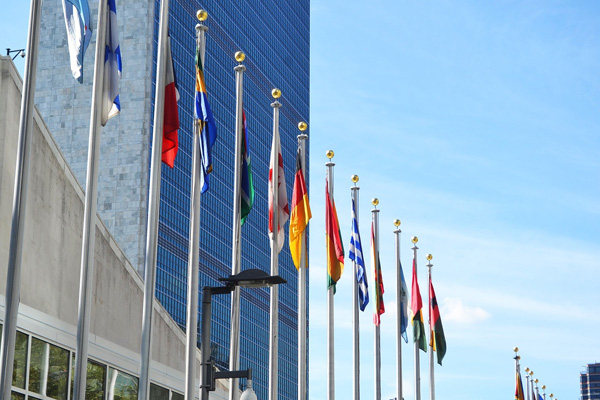Saudi Arabia fails to secure a seat on the U.N. Human Rights Council

[United Nations. Photo Credits to Pixabay]
In a clear setback, Saudi Arabia failed to secure a seat on the U.N. Human Rights Council during elections held Wednesday, October 9, 2024.
The Council is an intergovernmental body of 47 Member States within the United Nations, dedicated to addressing and taking action against human rights violations.
To gain membership, Council members must be voted onto the council by the 193 members in the U.N.’s General Assembly.
The selection process divides voting among five geographical groups to ensure fair representation with member allocation based on regional population.
The Group of Asia-Pacific States, representing the largest population bloc, holds 13 seats on the Council.
Since its establishment in 2006, 123 U.N. member states have served on the council.
Saudi Arabia previously held seats as part of the Group of Asia-Pacific States from 2013 to 2016 and then re-elected in 2016 to 2019.
The nation was unable to secure a seat in 2020, falling short to China by 49 votes.
Its most recent loss was to the Marshall Islands by 7 votes.
The Asia-Pacific division proved the most competitive region with 6 states contending for 5 slots.
Final results showed Thailand leading with 177 votes, followed by Cyprus (167), Qatar (167), the Republic of Korea (161), and the Marshall Islands (124).
Analysts say Saudi Arabia’s consecutive failures to join the Council reflect a flaw in Crown Prince Mohammed bin Salman’s (MBS) Project 2030, an initiative to transform Saudi Arabia into a thriving economic, social, and cultural hub.
While experts acknowledge the Saudi economy could benefit from this program, they emphasize it will take substantial effort to change perceptions of its human rights record, citing the country’s treatment of political dissenters and migrants, lack of fair trials, human trafficking, and other violations.ns.
The country’s attempt to gain Council membership, while simultaneously breaking its annual execution record, has drawn criticism from international organizations and officials.
Various human rights organizations like Amnesty International and Human Rights Watch previously called for the country to be suspended during its term on the Council by pointing out the country’s “hypocrisy” in participating while murdering thousands of migrants and citizens.
Louis Charbonneau, UN director at Human Rights Watch, called Saudi Arabia “unfit to serve on the…Council,” stating that “Governments that commit crimes against humanity…shouldn’t be rewarded with seats on the UN’s top human rights body.”
Charbonneau specifically referred to the killing of hundreds of Ethiopian refugees seeking shelters in Yemen and the dismemberment of Saudi journalist Jamal Khashoggi.
While the Saudi government denies these claims, its human rights record continues to challenge its attempts to present itself as a modern society.
The newly elected 47 members of the Human Rights Council will begin their term on January 1, 2025.
Saudi Arabia’s next chance to join the council will be in 2028 following the Member States’ three-year term.

- Hanah Park / Grade 11 Session 7
- Imagine International Academy of North Texas

![THE HERALD STUDENT REPORTERS [US]](/assets/images/logo_student_us.png)
![THE HERALD STUDENT REPORTERS [Canada]](/assets/images/logo_student_ca.png)
